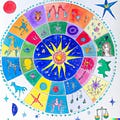Why You Might Be a Different Sign in Vedic Astrology Than You Are in Western Astrology
...and why it's not really that big a deal
People who know their natal chart in the Western astrology are often shocked and/or even highly sceptical when they find out their planets or ascendant are suddenly in a different sign in the Vedic system. In fact, I almost called this post “But I’m a Sagittarius, not a Scorpio! (said with a hint of desperation)”
This tendency is so strong that I don’t a…
Keep reading with a 7-day free trial
Subscribe to Crossroads Astrology to keep reading this post and get 7 days of free access to the full post archives.


